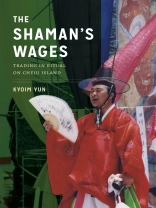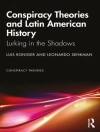Breaking from previous scholarship on Korean shamanism, which focuses on mansin of mainland Korea, The Shaman’s Wages offers the first in-depth study of simbang, hereditary shamans on Cheju Island off the peninsula’s southwest coast. In this engaging ethnography enriched by extensive historical research, Kyoim Yun explores the prevalent and persistent ambivalence toward practitioners, whose services have long been sought out yet derided as wasteful by anti-shaman commentators and occasionally by their clients.
Intrigued by discord between simbang and their clients over fee negotiations, Yun set out to learn the deep-rooted legacy of condemning or trivializing the practitioners’ self-interests, from a neo-Confucian governor’s purge of shrines during the Chosŏn dynasty to the recent transformation of a community ritual into a practice recognized through UNESCO World Heritage status. Drawing on a wealth of firsthand observations, she shows how simbang distinguish ritual exchanges from more mundane instances of bartering, purchasing, bribing, and gift giving and explains why ritual affairs are nonetheless inevitably thorny. This original study illuminates the intertwining of religion and economy in shamanic practice on Cheju Island.
Despre autor
Clark W. Sorensen is professor of international studies and anthropology in the Jackson School of International Studies at the University of Washington, where he is also director of the Center for Korea Studies. He is the author of Over the Mountains Are Mountains: Korean Peasant Households and Their Adaptations to Rapid Industrialization (University of Washington Press, 1988) and coeditor of Reassessing the Park Chung Hee Era, 1961-1979: Development, Political Thought, Democracy and Cultural Influence (Center for Korea Studies, University of Washington, 2011).












